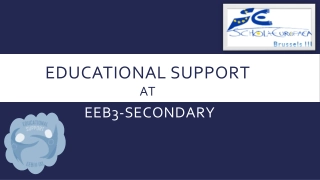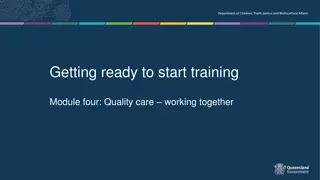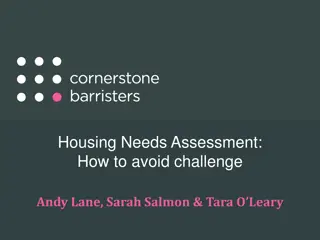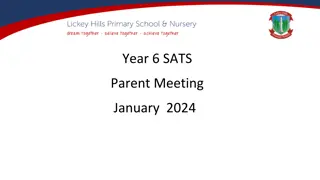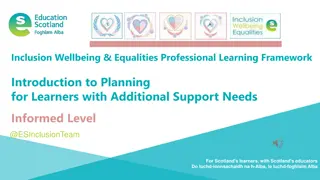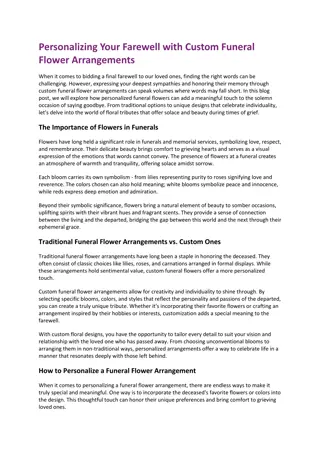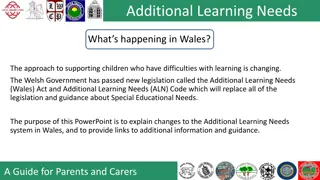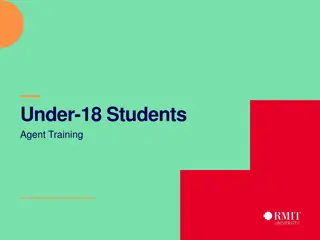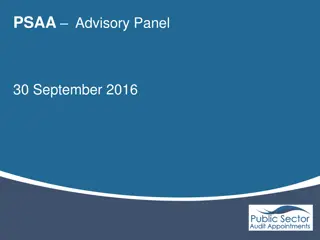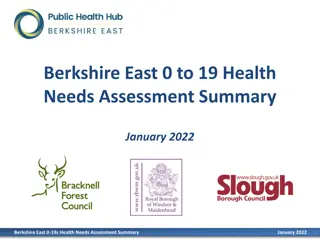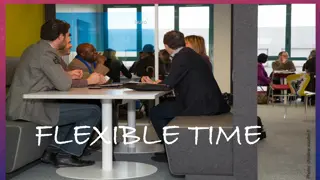Understanding Assessment Arrangements for Students with Additional Support Needs
Assessment arrangements cater to candidates with identified additional support needs to ensure fair access without compromising integrity. Eligible candidates may receive reasonable adjustments tailored to their individual requirements, with evidence required to support the need for specific accommodations. The adjustments should align with the candidate's normal way of learning and producing work to mitigate substantial disadvantage. The process involves assessing individual needs subject by subject, reflecting the candidate's typical learning methods, and ensuring a supportive assessment environment.
- assessment arrangements
- additional support needs
- reasonable adjustments
- individualized accommodations
Uploaded on Aug 10, 2024 | 0 Views
Download Presentation

Please find below an Image/Link to download the presentation.
The content on the website is provided AS IS for your information and personal use only. It may not be sold, licensed, or shared on other websites without obtaining consent from the author. Download presentation by click this link. If you encounter any issues during the download, it is possible that the publisher has removed the file from their server.
E N D
Presentation Transcript
SQA Additional Assessment Arrangements What do you need to know as a parent?
Who is entitled? Who is entitled? Assessment arrangements allow candidates who have been identified as having an additional support need and those currently accessing support in school; appropriate arrangements to access the assessment without compromising its integrity.
Candidates who are eligible for reasonable adjustments The candidate may have difficulties in the following areas; manual dexterity, spatial co-ordination, memory, concentration and cognitive processes etc. Where these difficulties are minor then candidates should be assisted by offering specific help with study and assessment skills for example, time management and memory strategies. It is only when a candidate is placed at a substantial disadvantage that an adjustment to the assessment arrangements should be considered. The adjustments should tie in with the way the candidate normally accesses the curriculum.
Evidence There needs to be evidence of a candidate s need for a particular adjustment. This will include some of the following; Information on the nature and extent of the disability/additional support need and how this has impacted upon learning in the classroom. Information from a range of professionals e.g. NHS Samples of work produced with or without a scribe/reader/extra time
Assessment arrangements should be tailored Assessment arrangements should be tailored to meet a candidate s individual needs. to meet a candidate s individual needs. As part of the overall support offered to them, candidates should have an assessment plan, considered subject by subject, with no assumption that the same kind or level of support will be required in every case. For example, a candidate with writing difficulties might not be at any disadvantage in a multiple-choice question paper in the National 5 Chemistry examination. However, the same candidate might have difficulties producing a written essay in the National 5 History examination. There should be documented evidence of a candidate s assessment needs.
Assessment arrangements should reflect, as far as possible, the candidate s normal way of learning and producing work. The method used to facilitate access to an assessment will generally, though not always, be the method that has been used in the learning environment. For example, if a candidate with dyslexia normally uses a laptop computer with spellchecker in class to overcome writing difficulties, this should be the assessment arrangement provided in the assessment. Examples: EAL students must regularly make use of a dictionary in your class as well as when completing assessments to be able to access additional time. Students accessing separate accommodation or time should have this is all assessment tasks throughout the year.
Please Remember If you have questions about additional assessment arrangements please do not hesitate to ask? Please know that the school does not have the power to say YES to assessment arrangements we make an application to the SQA. If you have paperwork or evidence to back up an assessment arrangement request please do send a copy into school. If your child has anxieties about exams or planning school work then please speak to us and we can offer advice and support.




